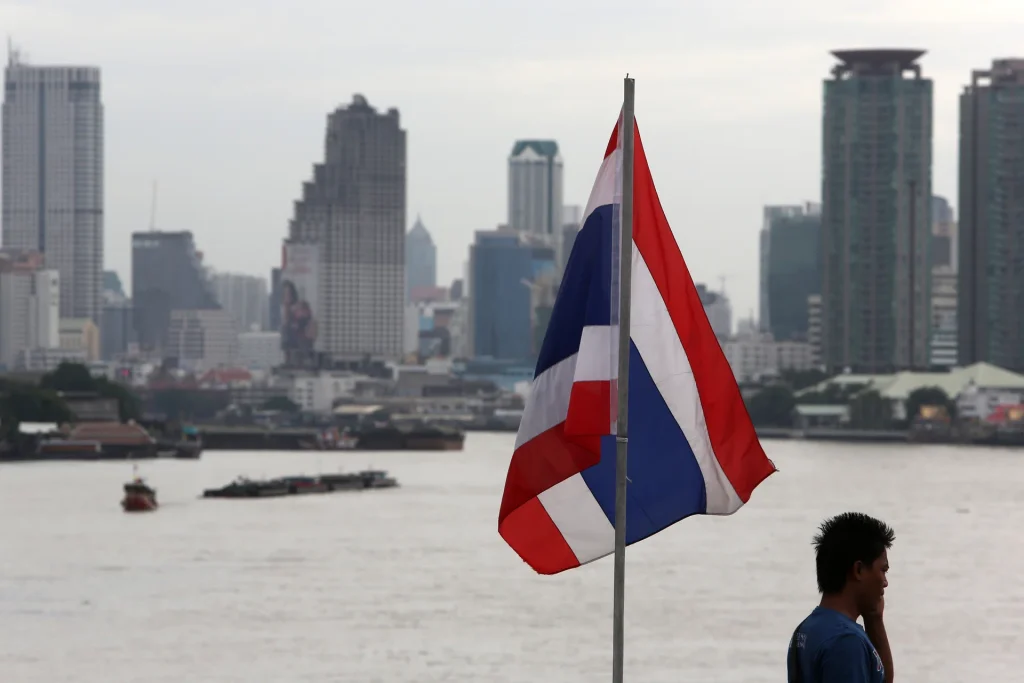[BANGKOK] Thailand’s economy is already on the ropes. Consumption has remained tepid despite a government stimulus programme, few of its economic engines are firing, and uncertainty wrought by US President Donald Trump’s reciprocal tariffs means that the Thai economy could grow just over 1 per cent this year.
Now, South-east Asia’s second-largest economy faces a fresh challenge: a new round of political chaos that can bring down Prime Minister Paetongtarn Shinawatra or her ruling Pheu Thai party.
“We are currently in a period of economic downturn, with many issues affecting us,” Visit Limlurcha, vice chairman of the Thai Chamber of Commerce, told Reuters.
“This could make things even more complicated.”
The most significant short-term concern is the passage of a 3.78 trillion baht (S$147.9 billion) budget for the 2026 fiscal year, which starts on October 1, that must pass through parliament over the next few months. That process could get stalled if Paetongtarn, who is under siege for her handling of a festering border row with neighbouring Cambodia, dissolves parliament and triggers fresh elections.
“If parliament is dissolved before the budget is passed, the process will be delayed significantly,” said Prakit Siriwattanaket, managing director of Merchant Partners Asset Management. Thailand’s economy has lagged regional peers as it struggles under high household debt and borrowing costs, and sluggish demand from China, which is also a key tourism market. It expanded 2.5 per cent last year, and growth could be further halved this year due to US tariffs, Finance Minister Pichai Chunhavajira said last month.
A NEWSLETTER FOR YOU

Friday, 8.30 am
Asean Business
Business insights centering on South-east Asia’s fast-growing economies.
Thailand’s stock market has been the worst performing bourse in Asia so far this year, down 23.4 per cent. Industrial sentiment also hit its lowest in eight months in May, even as consumer confidence dropped to a 27-month low.
There is a clear need to press ahead with government spending, which has dropped by over 38 per cent annually during April-May 2025, OCBC economists Lavanya Venkateswaran and Jonathan Ng said in a report on Thursday, warning of a “double whammy” for the economy if both government expenditure and exports weaken.
Amid the ongoing tumult, Paetongtarn may be able to hang on to her premiership and a coalition led by her Pheu Thai party could retain its majority, albeit in a weaker position compared with its previous grip on the parliament.
Such an arrangement will prolong political instability and raise the spectre of street protests, which have been part of previous crises and could hit one of Thailand’s key remaining economic engines: tourism.
“I’m worried. I don’t want the situation to cause people to take to the streets,” Thienprasit Chaiyapatranun, President of Thai Hotels Association, which represents around 1,000 hospitality establishments, told Reuters.
“If they take to the streets, it will hit tourism.” Activists – including those who have in the past agitated against Paetongtarn’s father, the divisive former premier Thaksin Shinawatra – met on Friday (Jun 20) to plan a major protest next week, and demanded the prime minister’s resignation. A government lacking full authority may also struggle in ongoing trade negotiations with the United States, which has threatened to impose a 36 per cent tariff rate on imports from Thailand, said Natapon Khamthakrue, an analyst at Yuanta Securities.
“The United States certainly would not want to talk to a government without full power or with few votes,” he said. Some business chambers and analysts are, nonetheless, holding out hope that a political resolution can be found quickly, minimising damage to the Thai economy, which has been rattled by multiple coups in the last eight decades, including two against governments led by the Shinawatra family.
“Although the economy is no stranger to political uncertainty,” OCBC’s economists said, “the timing could not be more inconvenient considering external headwinds.” REUTERS


